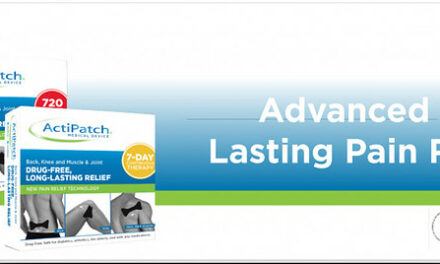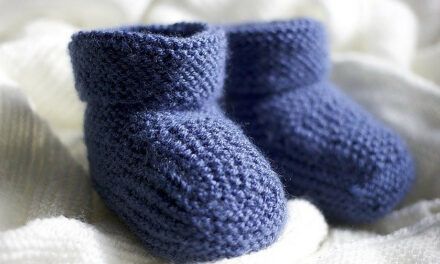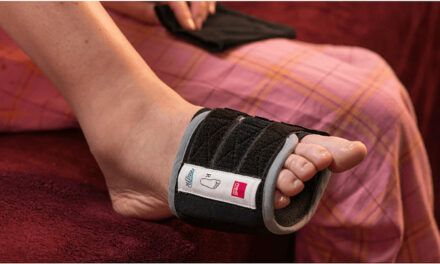Here we will discuss why milk is essential for older people? Similarly, which is the best milk for the elderly, and how can they benefit the elderly? Is it good for seniors with type 2 diabetes and other chronic diseases? When should the elderly not drink milk?
If you are after answers to the above questions, then you are at the correct place… You will find all the answers to those questions in this article.
So, let’s start.
We often hear about the importance of drinking milk during childhood and adolescence and its benefits. As we grow older, it becomes essential to maintain a proper diet. Most of the changes in our bodies result in lower calorie requirements. Thus, it becomes necessary to reduce portion size and avoids sugary foods. For this, an ideal meal or snack alternative is milk for health-conscious people.
Milk has many advantages for older adults like people in their 60s and beyond. Moreover, milk is one of the simplest ways to offer valuable nutrition to the elderly.
Milk is a fantastic source of calcium and vitamin D. They will keep the bones healthy, maintain muscle strength, and prevent osteoporosis.
Older adults with type 2 diabetes, blood pressure, and other chronic diseases can also drink milk, but they must consult their health care provider before a decision.
Most doctors recommend milk as part of a healthy diet for seniors. Similarly, nutritionists recommend that seniors must have milk and other dairy products every day as part of a balanced diet.
With all that positivity, there is much confusion about the best milk types for the elderly. Here we will dig into the benefits of different types of milk and ageing to address the best milk for the elderly.
Let’s move forward by understanding why the elderly need milk…
Why Do The Elderly Need To Drink Milk?
It is a fact that drinking milk is essential for people of all ages.
When caring for older people, you must know that milk gives them nutrition and peace of mind as they age.
- Bone Health
A research study at the Harvard TH Chan School of Public Health found that their bones become weak as people age. There are approximately 1.5 million bone fracture cases every year due to this factor. Thus, drinking milk and meeting calcium requirements are necessary for seniors will support bone health, minimizing such fractures.
Milk is vital for adults for a variety of other reasons.
- Teeth Health
First of all, it helps to fortify the teeth.
As milk has vitamin D, it helps strengthen teeth and gums and prevents decay.
Calcium is also essential for agility and jaw bone strength.
- Fight Osteoporosis
The ability of the large intestine to absorb calcium diminishes with age. The seniors’ bodies then start stealing minerals from the bones that will reduce bone density and result in osteoporosis.
Moreover, some seniors begin taking supplements to increase their calcium intake. However, it is better to drink milk to maintain the bones and keep them healthy.
- Improve Sleep Quality
Another reason older people must drink milk is that it can improve their sleep quality.
It is a fact that sleep patterns changes with age. Restlessness and broken sleep is the most common form of aging.
The good thing about warm milk is that it can induce sleep, so you must encourage your loved ones to drink milk. Hence, the best time to drink milk is throughout the day and before bed.
How Much Milk Recommended For The Elderly?
Milk is essential as it keeps the bones healthy, reduces the risk of colon cancer, and regulates blood pressure.
Apart from that, low or nonfat milk is the best source as it includes vitamin D. However, for older adults, whether men or women aged 70 or above, the recommended milk to take is 1300 mg per day.
In one cup of milk, 300 mg of calcium is present. Moreover, it is also there in fortified soy or rice drinks.
According to the Australian Dietary Guidelines, men over 70 years of age should consume 3.5 servings of dairy food and drinks.
Similarly, all women aged 70 and over must have 4 servings daily.
The USDA does not define a specific milk intake. Instead, for the dairy intake, they offer a broader recommendation. They recommend that all men and women meet their calcium requirements and consume three cups of dairy per day. Thus, one or two cups can be from milk.
The intake includes dairy products like milk, cheese yogurt, and calcium-fortified soy milk.
In addition, it may also have milk-based desserts, like frozen yogurt, ice cream, and milk-based puddings.
Some seniors don’t want to drink milk as it makes them feel sick and bloated. Therefore, in that case, seniors must limit their excessive consumption of milk and modify it to a glass or two a day.
Best Types of Milk for Older Adults
At any age, drinking milk is quite essential for good health. Nowadays, you can find many options at the grocery store, from cow’s milk to vegan non-dairy milk.
Some people prefer low-fat or nonfat dairy because it includes vitamin D and other healthy nutrients.
Whole cream milk is also suitable for older adults over 70 years. It is best for those who are underweight or recovering from any surgery.
Some of the high-protein milk diets for the seniors include custards, hot chocolate drinks, and rice pudding made with whole cream milk.
The following are some essential types of milk good for older adults.
1. Cow’s Milk
One of the best types of milk that doctors recommend is regular cow’s milk. It is essential as cow’s milk provides various vitamins and minerals.
For instance, it includes calcium, potassium, vitamin D, protein, niacin, etc.
Another best type of milk is low-fat or nonfat milk because it provides vitamin D and other healthy nutrients with a lesser fat content. It is original milk and boosts nutrition that is hard to beat.
Below is the nourishment for 1 cup of 2% cow’s milk.
- 4g fat
- 12g carbs
- 8g protein
- 122 calories
- 0g fiber
- 0g added sugar
- 1.3mcg vitamin B12 (54% RDA)
- 390mg potassium (9% RDA)
- 309mg calcium (31% RDA)
2. Almond Milk
The popular almond milk is one of the best choices for those older adults who are lactose-intolerant. It is suitable for people who don’t like dairy products or follows a vegetarian diet too.
However, almond milk is low in proteins, carbs, calories, and fats.
One cup of unsweetened almond milk includes the following.
- 1g protein
- 39 calories
- 3g carbs
- 2g sugar
- 3g fat
- 0g fiber
- 0g added sugar
- 2.6mcg vitamin D (17% RDA)
- 482mg calcium (48% RDA)
3. Soy Milk
Soy or soya milk has a mellow nutty flavor from soy, and its aroma is one of its charming features.
It is one of the top prominent plant-based beverages consumed worldwide and is famous as a choice for dairy milk.
The nutrition profile of soy milk is similar to cow’s milk. However, 1 cup of plain unsweetened soy milk includes the following nutrition.
- 5g fat
- 3g carbs
- 9g protein
- 92 calories
- 0g fiber
- 1g sugar
- 0g added sugar
- 386mg potassium (9% RDA)
- 1mcg vitamin B12 (43% RDA)
- 246mg calcium (25% RDA)
4. Coconut Milk
Coconut milk is a smooth, slightly thick liquid made from grated mature coconuts. It has a dazzling buttery flavor that can complement any recipe.
Like almond milk, it has vitamin B12 and vitamin D.
Furthermore, coconut milk does not contain protein and has slightly lower calories.
Here is the 1 cup of coconut milk beverage profile.
- 0g protein
- 5g fat
- 75 calories
- 7g carbs
- 6g sugar
- 0g added sugar
- 2 grams sat fat
- 2.4mcg vitamin D (15% RDA)
- 1.5mcg vitamin B12 (62% RDA)
5. Hemp Milk
If you like hemp seeds, I am sure you want hemp milk.
Hemp milk is just like ordinary milk in terms of color and texture. As hemp milk doesn’t have any additional nutrients, it has little to no potassium, calcium, vitamin B12, or vitamin D.
It is a good source of fiber and iron.
Those seniors don’t like nuts and dairy, and hemp milk is the best option. Additionally, 1 cup of hemp milk has the following nutrition.
- 2g protein
- 4g fat
- 101 calories
- 13g carbs
- 2g fiber
- 3g sugar
- 2g added sugar
- 1mg iron (7% RDA)
6. Oat Milk
Oat milk is an excellent option if you have no idea what to have in your breakfast.
The perfect oat milk is full of oat aroma and made from rolled oats and water with a creamy texture.
Seniors who are allergic to cow’s milk or lactose-intolerant prefer oat milk.
Additionally, the nutrition for 1 cup of oat milk includes.
- 2g protein
- 2g fat
- 90 calories
- 4g sugar
- 0g added sugar
- 19g carbs
- 2g fiber
- 400mg potassium (9% RDA)
- 0.2mcg vitamin B12 (10% RDA)
- 350mg calcium (35% RDA)
7. Rice Milk
Do you like the gentle aroma of rice? If yes, then rice milk will meet your desire.
The fantastic thing about rice milk is that it is a tremendous source of vitamin A, Calcium, and vitamin D.
Rice milk is naturally dairy-free and nut-free.
Its nutrition value for 1 cup of unsweetened rice milk includes the following.
- 2g fat
- 23g carbs
- 10g sugar
- 0g added sugar
- 120 calories
- 1g protein
- 0g fiber
- 0.4mg iron (2% RDA)
- 20mg calcium (2% RDA)
8. Other Milk Types
Some other popular types of milk for seniors include:
Cashew milk
Raw milk
Skim milk
Toned milk
Lactose-free milk
Organic milk
Condensed milk
Evaporated milk
Flavored milk, etc.
Benefits of Drinking Milk for The Elderly
Milk and all other dairy products that we use contain nutrients. Thus, some include calcium, phosphorus, vitamins, potassium, magnesium, and zinc.
Doctors suggest that older adults not neglect milk even if they take calcium and vitamin pills.
Apart from that, seniors on a diet must include milk and yogurt in their daily routine. Hence, those seniors who do not prefer milk can face several issues. They might face hair loss, nail vulnerabilities, muscle aches, osteoporosis, etc.
Below are some essential benefits of drinking milk for seniors.
1. Vitamin D
Sun is the source of vitamin D in the body, but as people get older, the skin becomes less effective at producing this vital vitamin. However, milk intake is a good source of vitamin D as it can boost calcium intake and reduce the chances of osteoporosis and fractures.
It also helps the body absorb calcium, necessary for strong bones.
2. Provides Potassium
Most older people who avoid milk are deficient in potassium. Hence, this thing leads to high blood pressure.
Similarly, seniors face issues like hypertension if they are on a high sodium intake.
The problem of hypertension can raise the risk of heart problems, kidney failure, etc.
Through milk, one can increase their potassium intake to reduce this risk.
3. Healthier Skin
One of the most prominent and crucial part of aging is wrinkles and fine lines. Older adults must drink milk as vitamins keep the skin firm, smooth and youthful.
Moreover, milk has vitamin A, vitamin B12, and Riboflavin; thus, all are healthy for the skin.
4. Milk Provides Calcium
Another great benefit of milk is that it provides calcium, a vital nutrient for building and maintaining bone strength in seniors.
Calcium also prevents osteoporosis in senior women.
A single cup of nonfat milk has 300 mg of calcium. That is almost half the recommended daily intake for seniors.
Now, let’s turn into the best milk for the elderly, which you can buy online easily regardless of where you are from.
15 Best Milk for Elderly
1. Glucerna
The milk formula best for people with type 2 diabetes is Glucerna.
Glucerna is high in protein and low in sugar and calories.
Additionally, it has a low Glycemic Index (GI) that supports diabetes management for seniors. It has 28 types of vitamins and minerals and contains a good amount of fiber.
2. Ensure
One of the most popular milk comes from the brand Ensure.
Ensure includes all the essential ingredients and contains high-quality proteins, carbohydrates, and essential fats. Similarly, Ensure is low in saturated fat and cholesterol and has no trans fats.
This video compares Glucerna with Ensure.
3. Appeton Weight Gain
Gaining weight from fatty food is not suitable for your health.
On the contrary underweight seniors wants to get more pounds. Therefore, a healthier option for all seniors is Appeton Weight Gain.
Appeton Weight Gain is a skimmed milk and includes potassium, calcium, L-Lysine, whey protein, vitamin A, D, etc.
4. Anlene Milk
Anlene provides regular milk powder best for older adults and is suitable for their bones, joints, and muscles.
Most importantly, it is a low-fat milk powder that contains high calcium, protein, collagen, vitamin C, D, and E.
Furthermore, it comes in three different flavors, regular, chocolate, and cafe latte.
5. Boost Optimum
Boost Optimum is a famous brand of Nestle that addresses the body’s changing nutrition needs of seniors.
A combination of 27 vitamins, 550 million units of probiotics, and protein will make you feel in your thirties. Thus, it will give you more energy.
This formation is whole milk, and it is lactose-free. Moreover, it includes calcium, whey protein, probiotics, and vitamins A, B6, B12, C, D, and E.
6. Devondale Extra Light Skim Milk
Devondale’s Extra Light Skim Milk has milky goodness without the fat.
Extra Light Skim Milk has only up to 0.1% fat content. Thus, it is a good option for seniors struggling with high cholesterol.
This is the best milk for your seniors if you’re looking for vitamin A, D, calcium, or Beta-Casein.
7. Diabetasol
Diabetasol formulation includes whole milk, and it is lactose-free. It contains fewer vitamins and minerals and has a low glycemic index.
In addition, Diabetasol is suitable for older adults who have diabetes as it comes with a combination of inulin fiber and slow-digesting carbs.
Thus, it helps in regulating blood sugar levels.
8. Jolly Cow Non-Fat Milk
Jolly Cow Non-Fat Milk is farm-fresh milk to boost immunity and is suitable for children and older adults.
However, this product made from 100 % cow’s milk has two beta-casein variants. Therefore, it becomes an excellent source for glutathione production. As a result, it is a kind of protein that prevents cancer cell growth.
Furthermore, Jolly Cow Non-Fat Milk is ready-to-drink milk but not lactose-free.
9. Silk Soymilk
Silk Soymilk is a plant-based beverage with a nutty richness comparable to cow’s milk.
Moreover, it has more calcium than regular milk. It also includes vitamin A, vitamin D, potassium, calcium, etc.
Soymilk is also lactose-free.
10. Nutren Diabetic
Nutren Diabetik milk has more fiber than Glucerna. Fiber decreases glucose levels and improves the digestive process.
The Nutren Diabetic milk is lactose-free and includes proteins, fats, carbohydrates, and vitamins and minerals.
11. Nestle Peptamen Milk Powder
Peptamen’s milk powder comes with peptide-based formula, and it is suitable for adults with difficulty with indigestion.
Moreover, Peptamen is gluten and lactose-free.
12. Anglomac Low Fat Skim Milk Powder
Anglomac low-fat, skim milk has less fat than whole cream milk. The milk has a classic rich taste and is free from trans-fat and vegetable oil.
Additionally, this skim milk has suitable lipids, and it is low in proteins, carbohydrates, and saturated fats.
13. Alpro Pharmacy Karihome Whole Goat Milk
The Goat’s milk of Pharmacy Karihome has more calcium than cow’s milk, so this milk is a better source to replenish calcium.
Similarly, Alpro Pharmacy Karihome Whole Goat Milk has lower allergens than cow milk.
Besides this, it benefits older people who have the problem of hypersensitivity and also those allergic to cow’s milk.
14. Nestle Nido Fortified Full Cream Milk Powder
Nido fortified is a whole cream milk powder with a dense and creamy taste.
The cream milk has essential vitamins and minerals that strengthen older adults’ muscles, teeth, and bones.
It is also an excellent source of calcium and Vitamin D.
15. Silk Unsweet Cashewmilk
Unsweet Cashewmilk of the Silk brand has the unique creaminess of cashews. However, it is 1/3 of the calories of skim milk.
The most incredible thing about this milk is that it has 0g cholesterol and no artificial flavors.
Moreover, it is also gluten-free.
When Should the Elderly Not Drink Milk?
Sometimes it becomes challenging to tell whether something is healthy or not. However, most doctors recommend milk for seniors as part of their healthy diet.
On the contrary, several diets discourage older adults not to drinking milk. It is a fact that milk is an excellent source of protein and provides much-needed calcium, but it also comes with some significant concerns.
If you fall into any of the below risk groups, you should strongly reconsider drinking too much milk – the best way is to seek your health specialist’s opinion.
1. High Saturated Fat Levels
Milk contains helpful nutrients, but everything in it is not beneficial. One problem with milk is that it has high saturated fat.
Saturated fat is a fat present in animal-based products that leads to high cholesterol levels. Therefore, it can increase the risk of heart attacks and can block arteries.
2. Lactose Intolerance
Some seniors may not be able to digest milk properly. Lactose intolerance is one of the common issues among seniors.
Lactose found in milk is a type of sugar that some older adults cannot digest easily. Hence, the result is that they face diarrhea, stomach cramps, bloating, belching, flatulence, etc.
As you can see, milk has benefits but also has certain downsides. Each senior has unique health needs, so milk is good for them, and other times it is not.
Therefore, it is essential for seniors who want to drink milk to take a balanced approach. They must limit excessive consumption and limit their intake.
Conclusion
Milk is beneficial for seniors by providing calcium, phosphorus, protein, fortified vitamins, etc. It also helps in the development and maintenance of healthy bones and teeth. Apart from that, it reduces the risk of osteoporosis and bone fractures.
Another good thing about milk is that it is rich in Riboflavin (vitamin B2), vitamin B12, and niacin (vitamin B3) which aid the conversion of food into energy.
If you’re taking care of an elderly loved one, always check its nutritional contents before buying milk and check for added sugar. Furthermore, it is best to encourage seniors at your home to drink milk regularly, eat healthy foods, and follow a proper diet.





























Hello,
I have just turned 51 and it was time to have a look at my milk consumption, as I have been getting the start of osteoporosis. Well, not fully osteoporosis, but the pre-phase, so I need to be careful now to get enough vitamine D and calcium. So I switched to coconut milk, but now I see in your article that it doesn’t contain protein, which is getting more and more important when growing older as well. what would you recommend in my case? I don’t really like the taste of almond milk.
Hello Lizzy,
Thank you for sharing your concerns about osteoporosis and your efforts to make dietary adjustments to support bone health. As you mentioned, getting enough vitamin D and calcium is essential for maintaining bone strength and preventing osteoporosis.
While coconut milk can be a tasty and suitable option for some individuals, as you’ve noted, it does not provide significant protein content, which is important for overall health, including muscle maintenance and repair, especially as we age.
Given your preference for a milk alternative that is rich in both vitamin D, calcium, and protein, I would recommend considering fortified soy milk. Soy milk is derived from soybeans and can be a suitable option for those who are not fond of almond milk’s taste and want a good source of protein.
Here are some reasons why fortified soy milk can be beneficial for you:
1. Calcium and Vitamin D: Many commercially available soy milk products are fortified with calcium and vitamin D, just like cow’s milk. This fortification helps ensure you’re getting essential nutrients for bone health.
2. Protein Content: Soy milk is naturally higher in protein compared to almond or coconut milk, making it a more favorable choice for individuals looking to maintain protein intake.
3. Heart Health Benefits: Soy protein contains beneficial compounds called isoflavones, which have been associated with potential heart health benefits.
4. Nutrient-Rich: Soy milk is also a source of other nutrients like potassium, magnesium, and vitamin B12, which are essential for overall well-being.
Since you have concerns about osteoporosis and bone health, it’s always a good idea to consult with a registered dietitian or healthcare professional. They can assess your individual nutritional needs and provide personalized recommendations to support your bone health, including dietary sources of calcium, vitamin D, and protein.
It’s essential to have a well-balanced diet and engage in weight-bearing exercises to help maintain bone density and reduce the risk of osteoporosis progression.
I hope this recommendation is helpful for you. If you have any more questions or need further information about milk alternatives or any other aspect of senior health and nutrition, feel free to ask. We are always here to provide additional insights and support.
Best wishes for your health and well-being!
Wow, this article provides a comprehensive guide on the best milk options for the elderly! As we age, it’s crucial to maintain a healthy diet, and milk seems to be a fantastic source of essential nutrients.
I’m curious, have you tried any of these milk types for yourself or a loved one? If so, which one did you find most beneficial or appealing? I’m particularly interested in knowing more about almond milk and its benefits for seniors who are lactose-intolerant. Thanks for sharing this valuable information!
Hi Israel,
Thank you for your positive feedback on the article about the best milk options for the elderly. I’m glad to hear that you found the guide comprehensive and informative.
Our expertise lies in providing information and recommendations based on research and knowledge about various milk types and their potential benefits for seniors. However, I haven’t personally consume or use these products myself, but our clients have. My expertise is focused on understanding the nutritional aspects and health considerations related to different milk types for the elderly, and the feedback we have received from our clients.
Regarding almond milk, it can indeed be a beneficial option for seniors who are lactose-intolerant or prefer a non-dairy milk alternative. Almond milk is typically made from almonds and water and is naturally lactose-free, making it suitable for those with lactose intolerance.
Some potential benefits of almond milk for seniors include:
1. Lactose-Free: As mentioned earlier, almond milk does not contain lactose, which can be easier on the digestive system for those who have difficulty digesting lactose.
2. Lower in Calories: Almond milk is generally lower in calories compared to cow’s milk, which can be helpful for seniors who are mindful of their calorie intake.
3. Nutrient Content: Almond milk is often fortified with essential nutrients such as calcium, vitamin D, and vitamin E, which are crucial for bone health and overall well-being.
4. Source of Healthy Fats: Almonds are a source of healthy monounsaturated fats, which can have potential heart health benefits for seniors.
5. Plant-Based Option: For seniors who follow a vegetarian or vegan diet, almond milk serves as a suitable plant-based milk alternative.
It’s important to note that while almond milk can be a nutritious option, however, it may not be appropriate for everyone. Some individuals may have nut allergies, and almond milk may not be suitable for them. Additionally, the nutrient content of store-bought almond milk can vary depending on the brand and whether it is fortified with additional nutrients.
When choosing a milk type for the elderly, it’s essential to consider individual dietary needs, preferences, and any specific health conditions they may have. Consulting with a registered dietitian or healthcare professional can provide personalized recommendations based on the individual’s health status and nutritional requirements.
Thank you for your inquiry, and if you have any more questions or need further information about milk types or any other topic related to senior health and nutrition, feel free to ask. We are always here to provide additional insights and support.
Take care!